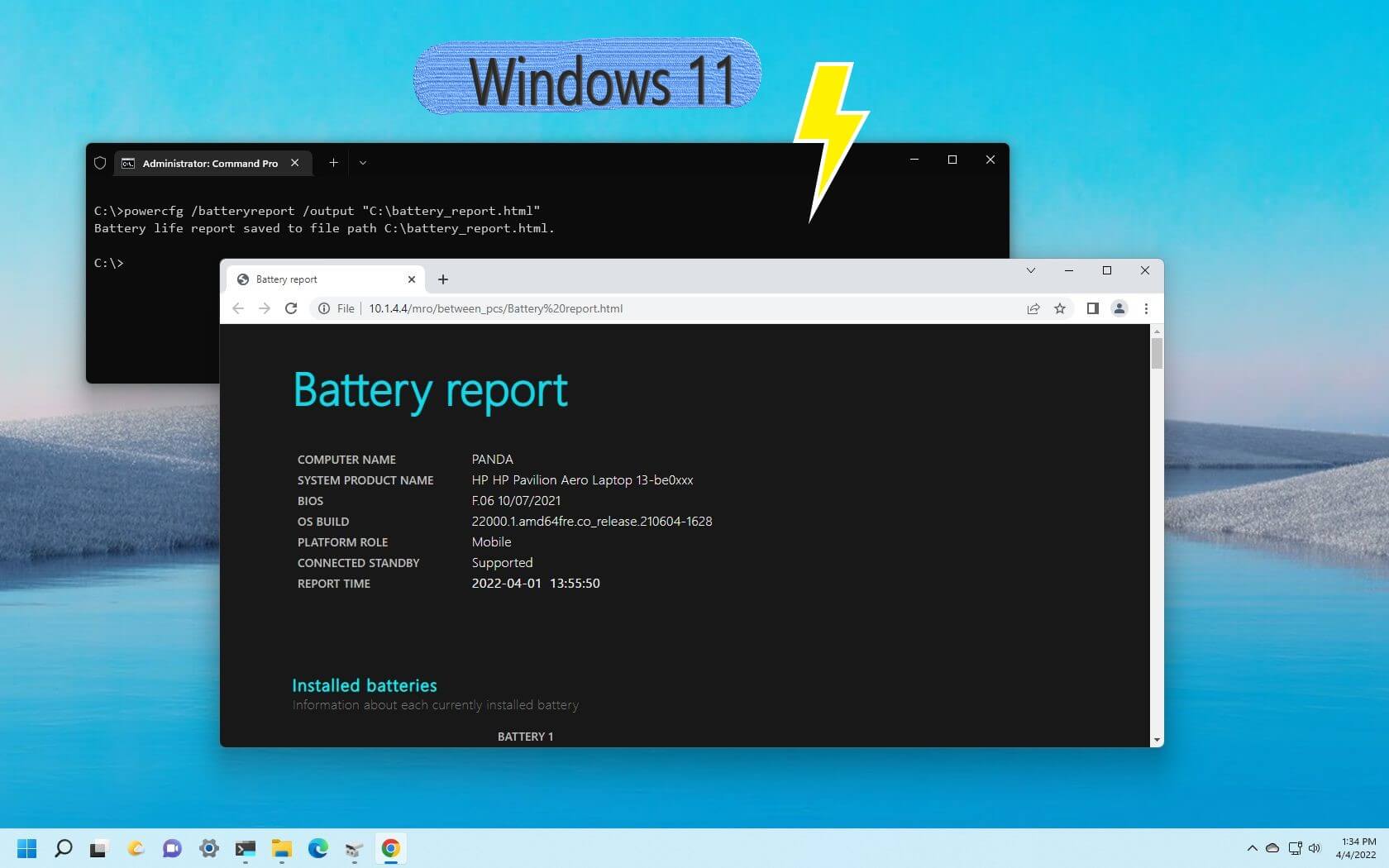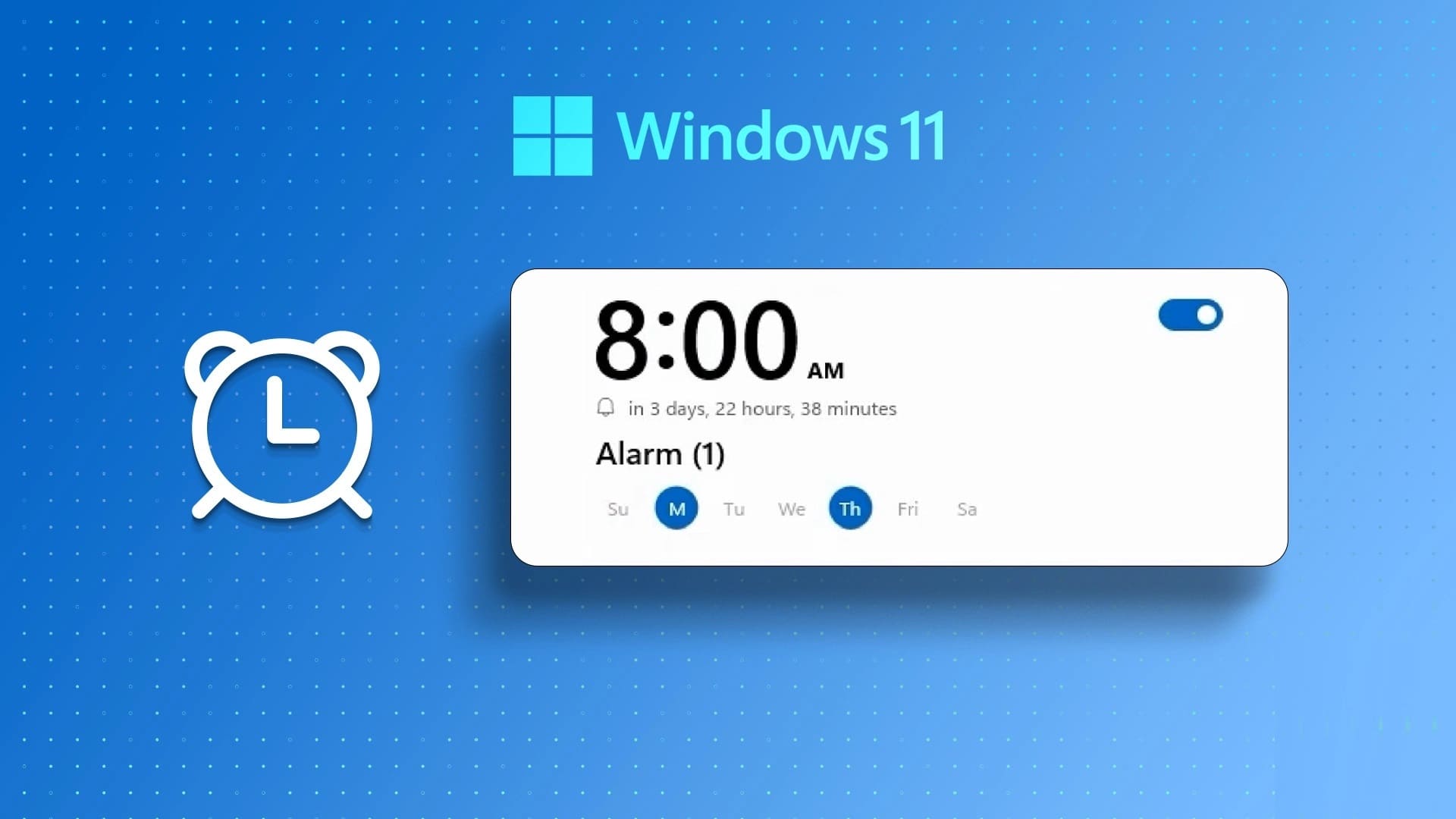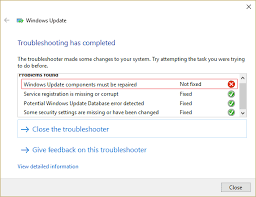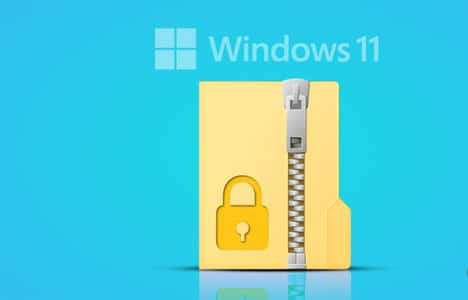Text replacement saves time and effort by automatically replacing selected abbreviations with longer phrases. In fact, it's one of the best ways to boost your productivity. Although commonly associated with Apple devices, you can achieve text replacement on Windows using built-in tools and third-party applications.
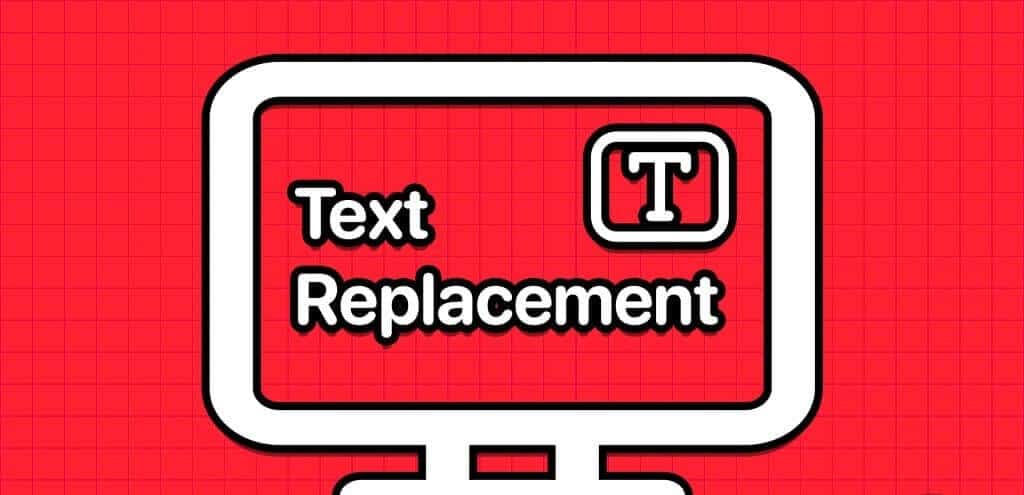
In this guide, we'll cover how to set up text replacement on Windows. There are also some limitations to it, so we'll use a third-party app to bypass them as well. By the end, you'll be able to get Apple-like text replacement functionality on your Windows PC. Let's get started.
Setting up text replacement in Windows using built-in tools
One of the simplest ways to set up text substitution in Windows is to use two built-in features: AutoText and AutoCorrect. AutoText allows you to create shortcuts for frequently used phrases, sentences, or paragraphs.
On the other hand, autocorrect is another built-in tool that corrects common spelling errors as you type. You can also use it to create text shortcuts. Here's how to use both.
1. Use AutoText
Step 1: turn on Microsoft Word Open a blank document. Type a phrase of your choice for which you want to create a shortcut.
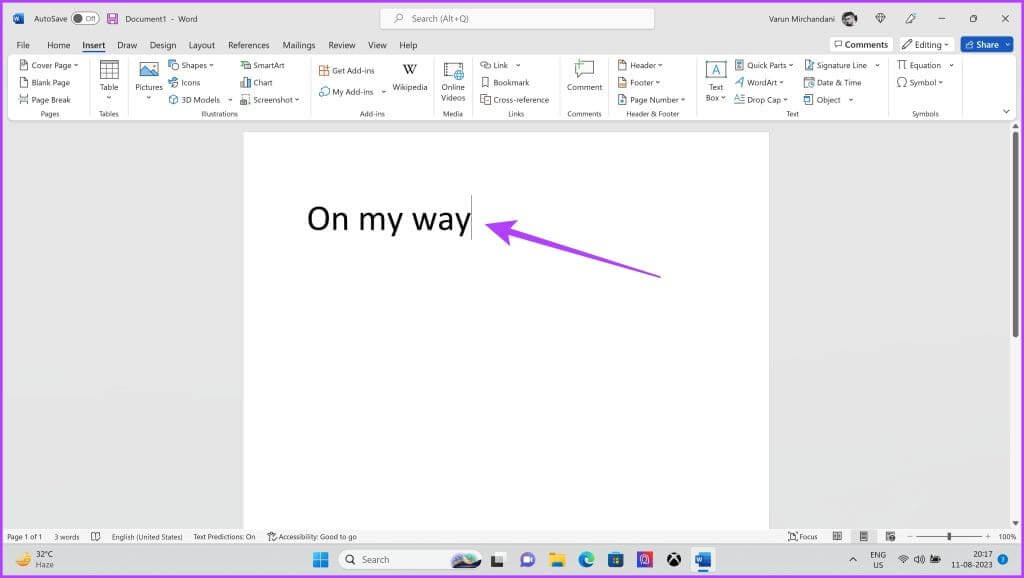
Step 2: Select the text and press Alt + F3 On your keyboard. This will open a window. Create a new building template. Click on OK to save it.
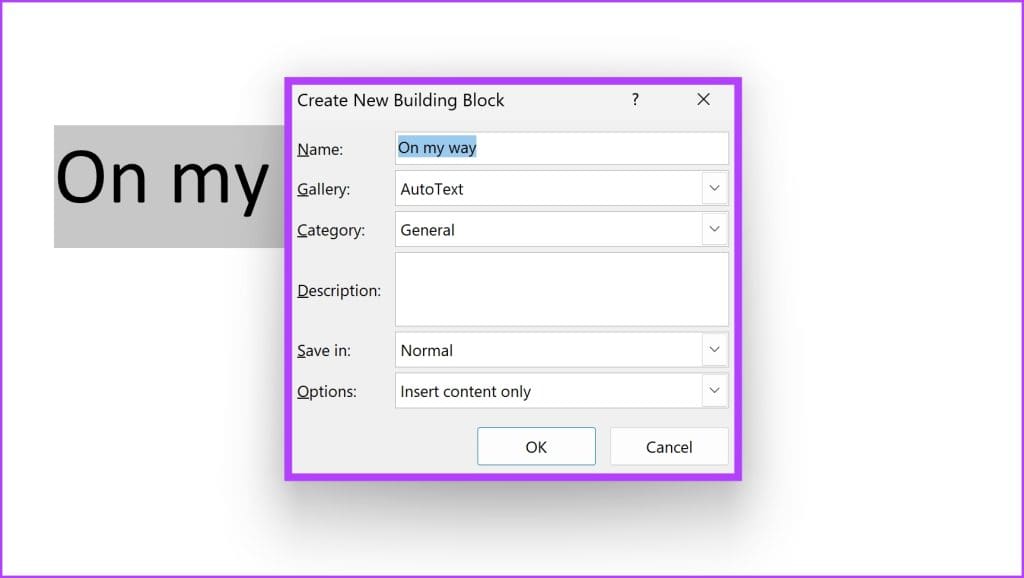
Step 3: Your autotext should now be saved. To use it, switch to the tab Insert located on the bar at the top and click Quick parts.
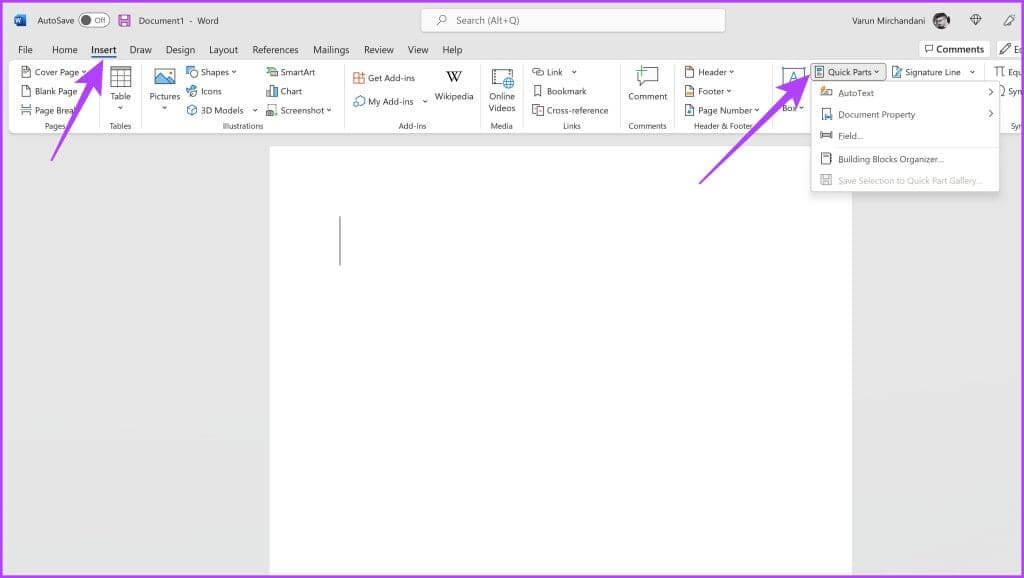
Step 4: Finally, click on AutoText and then select abbreviation Which I saved.
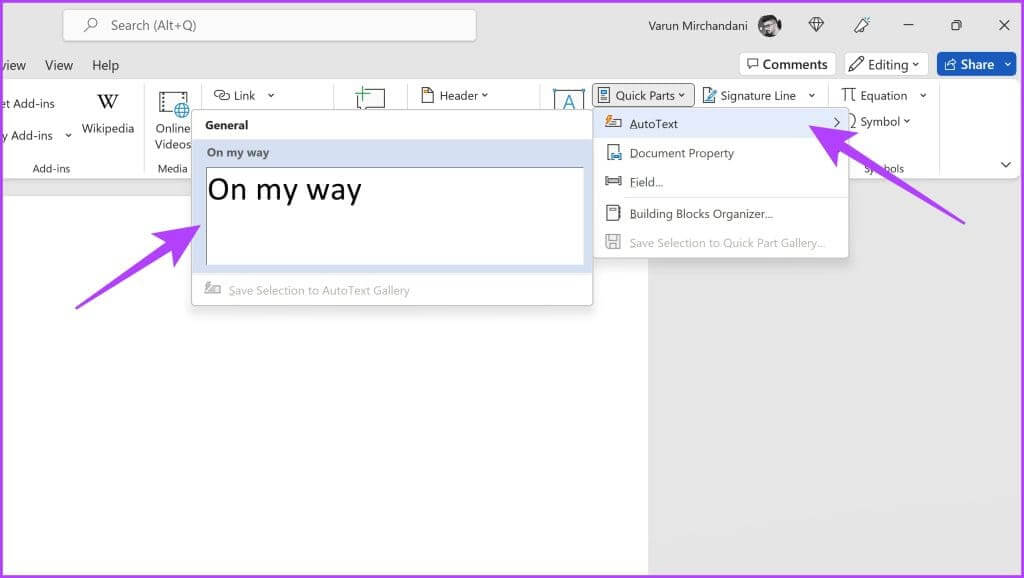
Microsoft will automatically insert it in the location you want. The advantage of this is that with AutoText, you can add multiple lines, along with custom formatting, and Windows will retain all of that.
However, it requires additional clicks. On the other hand, if you want to replace text automatically, you can use AutoCorrect. Here's how.
2. Create text replacement shortcuts using AutoCorrect
Step 1: Launch Microsoft Word and click "Options" from the left sidebar.
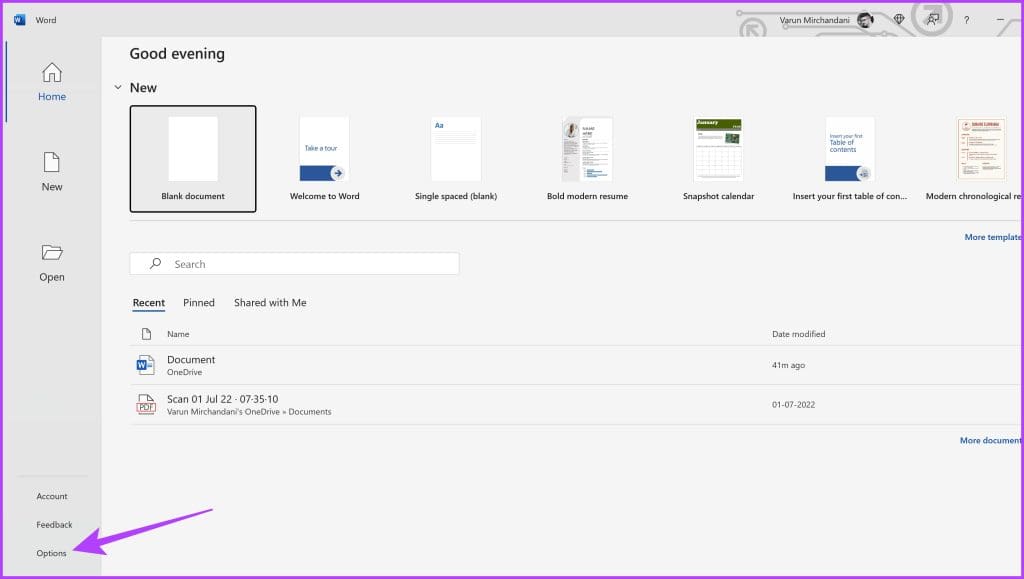
Step 2: in Word Options window , Click Audit In the left sidebar. This will take you to Audit settings.
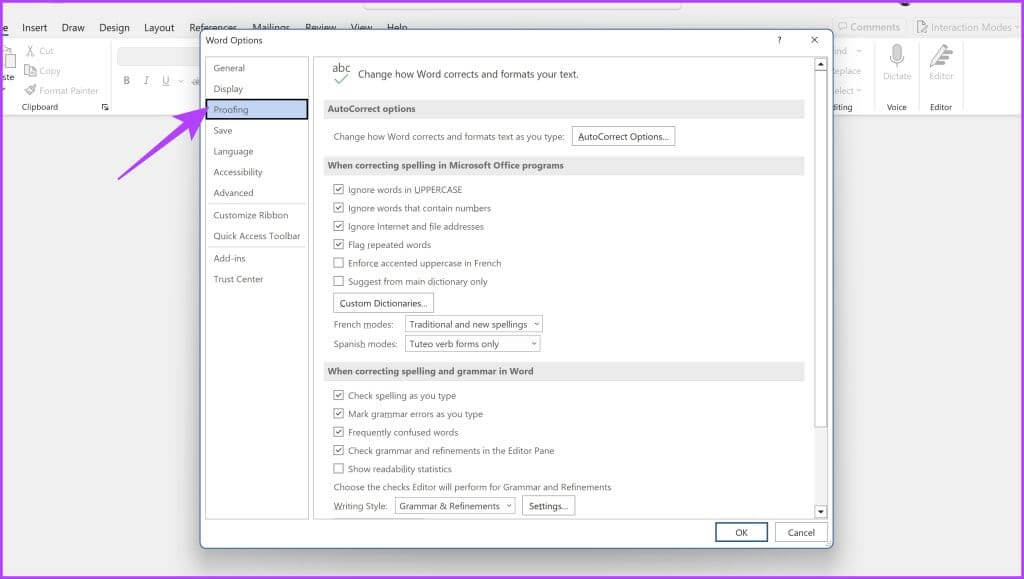
Step 3: Now, click Autocorrect options.
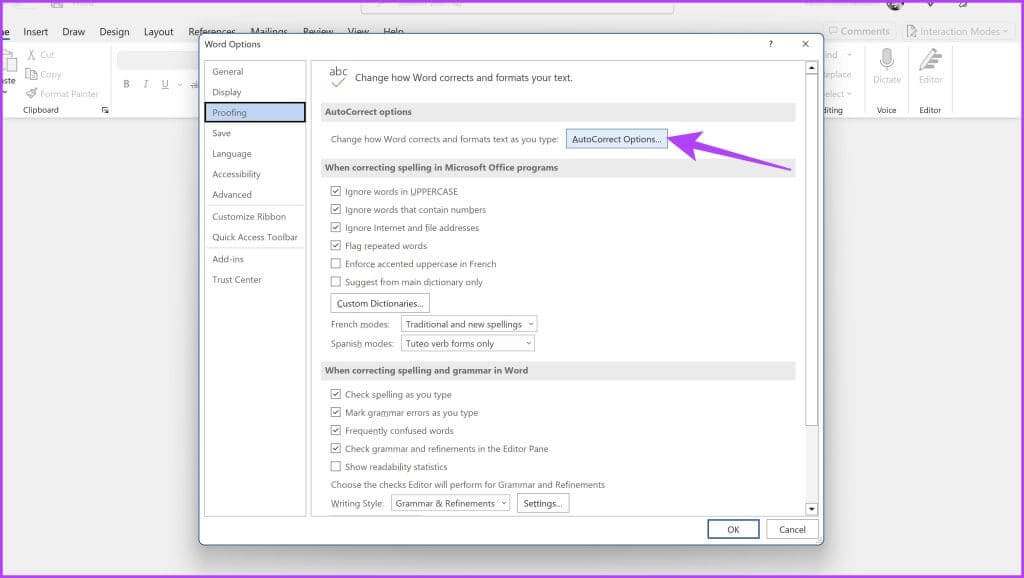
Step 4: Check the box next to "Replace as you type."
Step 5: Now, enter Keyword In the Replace section, also enter the keyword phrase you want to replace within the With section.
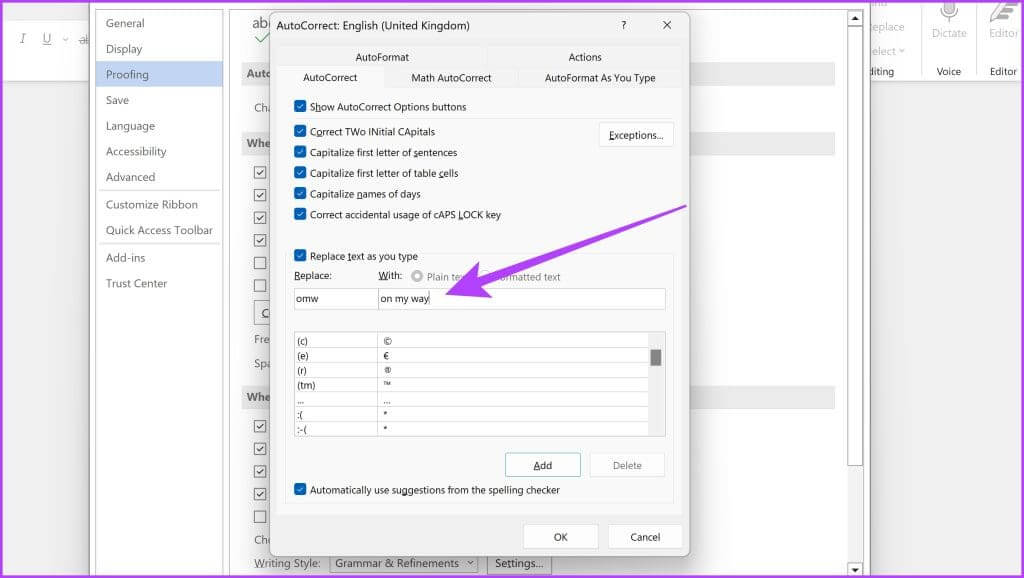
Step 6: Once done, click addition.
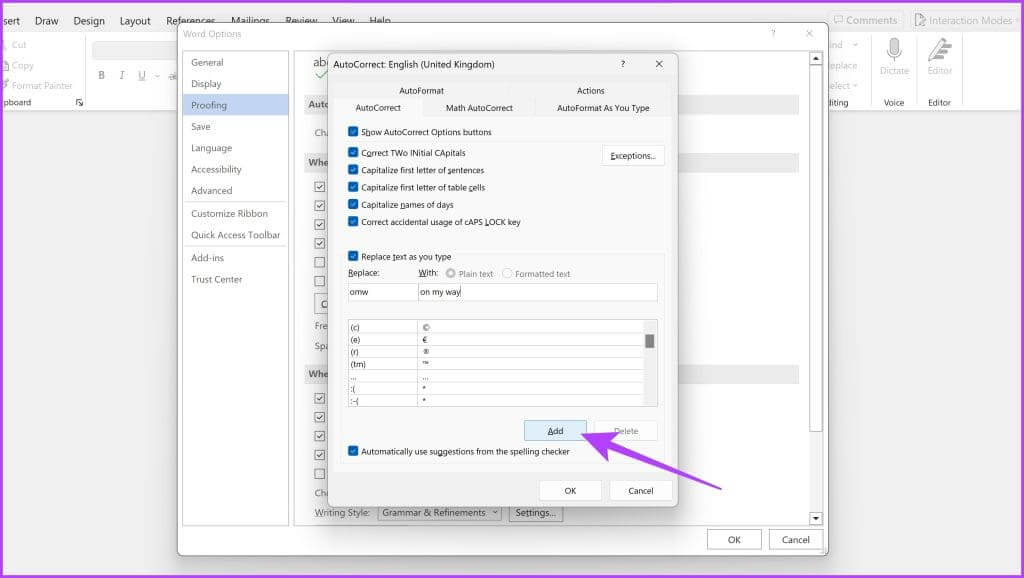
That's it. Now, when you enter a keyword, Windows will automatically replace it with the key phrase you specified. However, AutoCorrect works for up to 255 characters and doesn't preserve formatting or long text.
Limitations of AUTOTEXT and AUTOCORRECT
AutoText and AutoCorrect provide a key feature for text expansion. However, these features have some limitations. First, they only work within specific applications, such as Microsoft Word Or Outlook. So, if you set up alternatives there, they won't magically work anywhere else on your computer.
Additionally, performance isn't great either. Many users complain that auto-text entries take a few seconds to expand. This can be annoying if you're typing quickly. As for auto-correct, it's also not perfect and can sometimes make mistakes, such as replacing a misspelled word with a correct one.
So, move on to the next section for a better option to replace text on Windows.
Setting up automatic text replacement on Windows using BEEFTEXT
Fortunately, there are better solutions to make the task easier. In this guide, we'll use Beeftext to create text replacement shortcuts on Windows. Beeftext is a free, open-source, third-party text expansion application that allows you to create complex text replacement rules that can be used in any Windows application.
Step 1: Download the Beeftext And install it on your Windows PC.
Step 2: Once installed, run Beeftext.
Step 3: Now, click Groups Select New from the drop-down list of options.
Instead, tap Ctrl + N keys together on the keyboard.
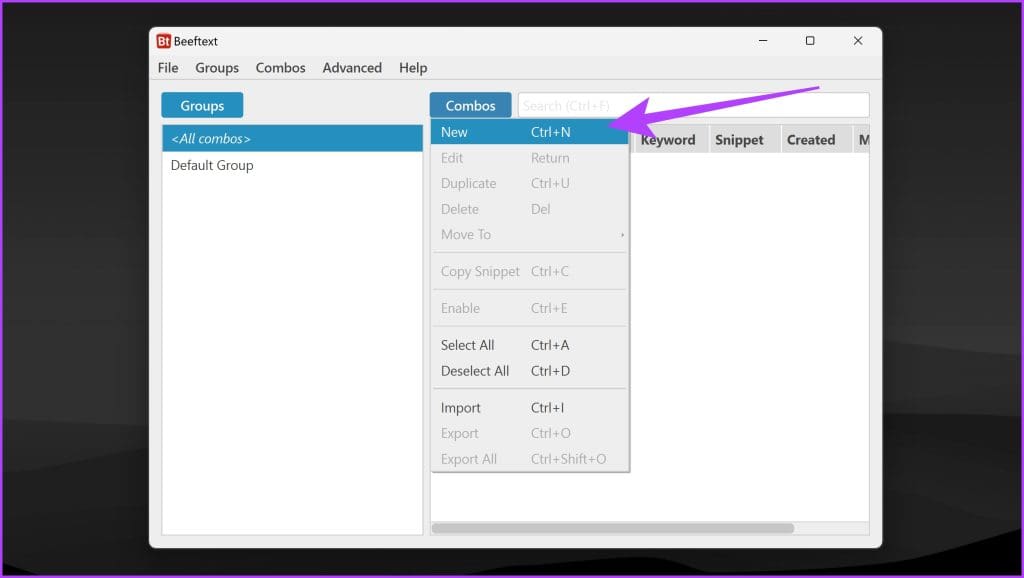
Step 4: Enter the full-text key phrase you want to create a shortcut for in the window. Snippets.
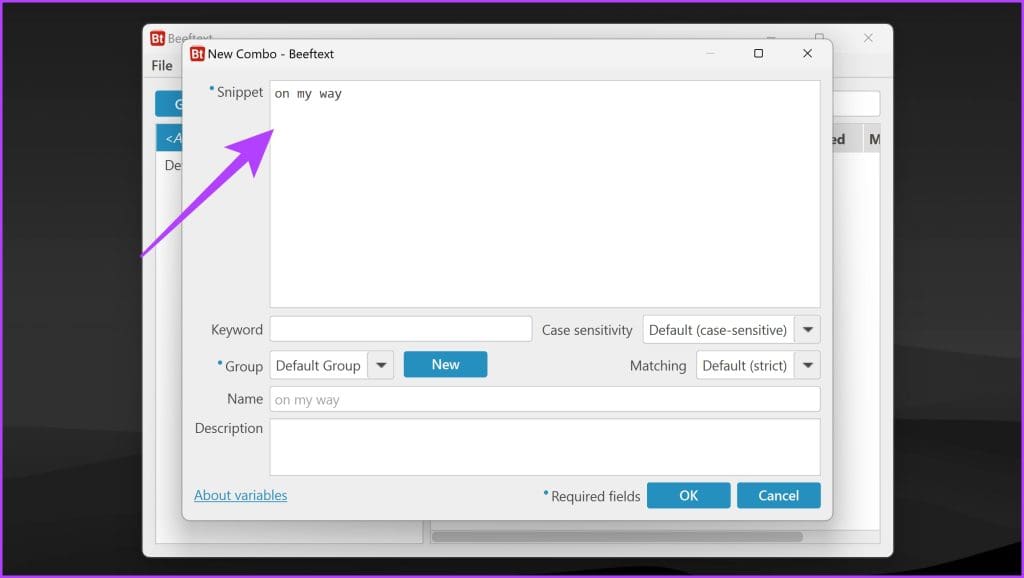
Step 5: Once you've done this, create a shortcut or abbreviation. Enter it in the الكلمات الرئيسية.
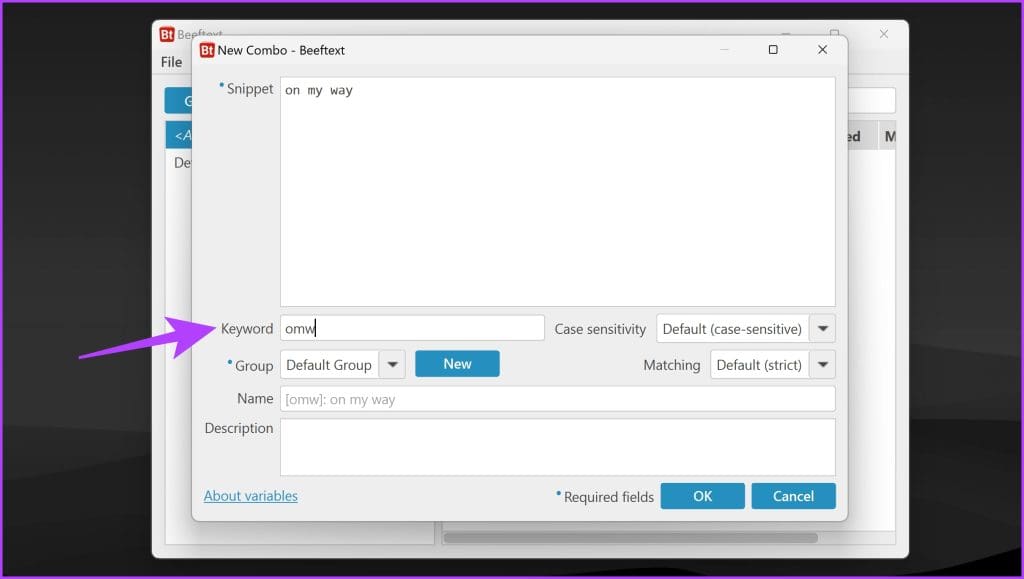
Step 6: Click "OK" When you finish.
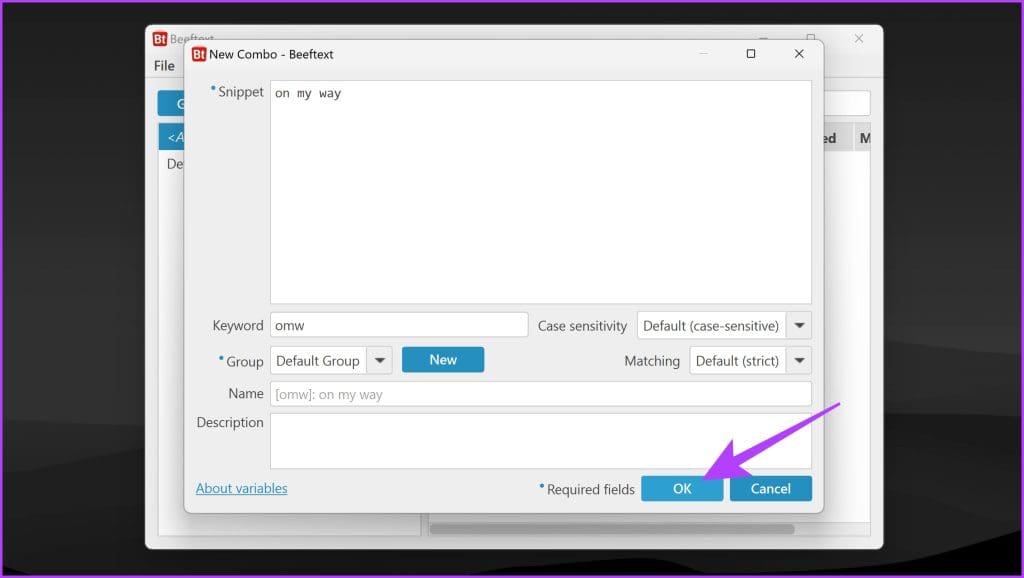
That's it. Your custom text replacement shortcut is ready to use on Windows. It replaces text as you type, similar to Windows AutoCorrect. Additionally, it preserves text formatting, similar to AutoText.
One thing to note here is that the text replacement function will only work when the Beeftext application is running. As such, it's a good idea to ensure that the application starts automatically when Windows starts. To do this, open the Beeftext application and go to File > Preferences, and enable the checkbox next to “Start Beeftext automatically when you log in.”
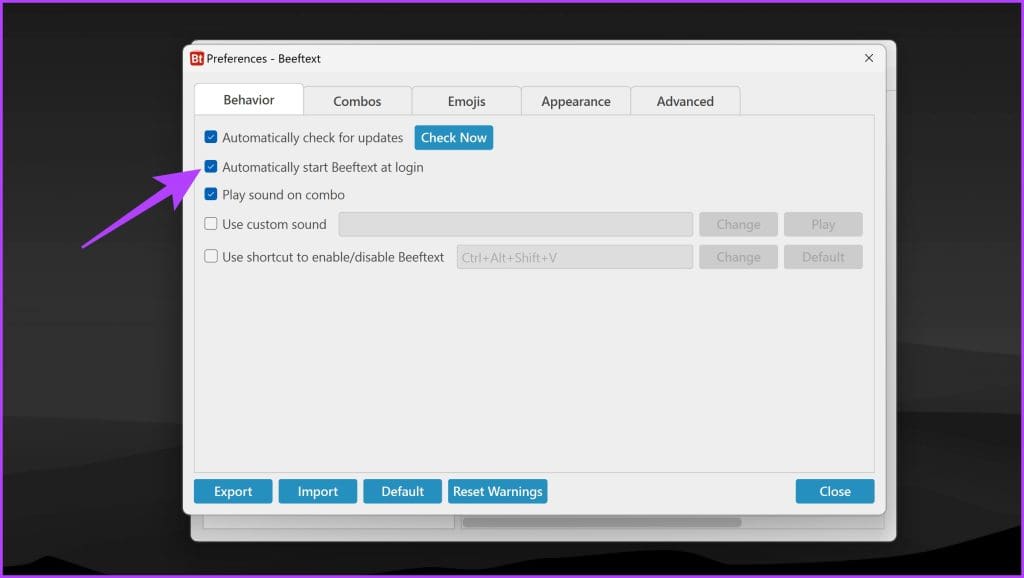
Frequently Asked Questions:
Q1. What is the difference between AutoText and AutoCorrect?
The answer: AutoText is used to create abbreviations for frequently used phrases or blocks of text. AutoCorrect is used to automatically correct common spelling and typos.
Q2. Can I use AutoText and AutoCorrect in all apps?
The answer: No, AutoText and AutoCorrect are only available in applications that support them. Most Microsoft Office applications support AutoText and AutoCorrect, but other applications may not.
Q3. Can I use text replacement in all apps with Beeftext?
The answer: Yes, unlike AutoText and AutoCorrect, Beeftext works across apps, providing system-wide text replacement functionality.
Type faster, be more productive
Text replacement is a valuable feature that can greatly improve your typing efficiency on Windows. While AutoText and AutoCorrect provide basic functionality in specific applications, Beeftext takes it a step further by providing system-wide text replacement, similar to Apple devices. We hope you can now easily enable automatic text replacement on your Windows PC.



